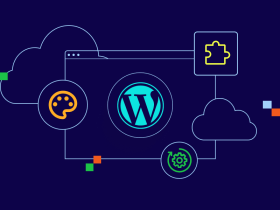Cloud adoption is increasing, protecting their IT systems is a bigger priority now. Enterprise Cloud Security reduces cyber risks by securing company systems and sensitive information together. Everything needed to maintain cloud security is explained in this guide.
What Is Enterprise Cloud Security
Data, applications and cloud resources are secured using Enterprise Cloud Security and its tools, policies and strategies. Unlike what happens with traditional setups, clouds are:
- Available for several users to use
- Accessed remotely
- Can be scaled up or down at the consumer’s request
The complexity brings about its own security problems. Every level such as storing data and accessing it, needs to be protected in cloud infrastructure.
What to Focus on in Cloud Security
1. Identity and Access Management
Regulating access to your cloud resources is essential. Set up access firmly with rules like:
- The use of multi-factor authentication (MFA)
- Using roles to manage user permissions (RBAC)
Such measures prevent unauthorized people from using important company systems, cutting down the risks of both internal and external attacks.
2. Properly Securing Data
Ensuring the protection of data applies equally to its placement and its transit. Through encryption, AES-256 makes it impossible for unauthorized parties to see your files. Add secure handling of keys to help maintain the privacy of your information.
3. Good Network Security is needed.
Since the cloud depends on a good network, protecting that network is a must. This includes:
- Firewalls and gateways built for security
- Security intrusion systems
- Make sure that every single gadget is authentic
Such measures help protect your network from hackers using weak points.
4. Prompt Threat Detection
Monitoring your systems constantly will help you identify and address assaults sooner. Apply technological solutions that:
- Watch and record specific behaviors.
- Offer notifications when an account behavior is suspicious
- Hand the problem over to machines to curb threats right away
So, these issues are managed early, avoiding serious problems.
5. Obeying All Necessary Rules
Businesses are required to follow laws, for example, GDPR, HIPAA or PCI-DSS, during data processing. Being compliant involves:
- Having regular audits
- Storing information in the proper place
- Dealing with possible risks via evaluations
They help you maintain your good reputation and avoid getting involved in lawsuits.
What You Need to Do to Boost Cloud Security
Use the following steps to boost your Enterprise Cloud Security:
- It is essential for employees to be informed about the indicators of phishing threats.
- Routinely conduct tests to find out about any problems.
- To set up cloud security, utilize the integrated security tools.
- Decide in advance what rules are needed to share data and who can use the data.
Gradual, minor changes implemented daily can lead to substantial effects over time.
Why It Is Significant in the Present Moment
Cyberattacks are becoming more frequent and with more sophistication. Any Enterprise Cloud Security shortfall could lead to losing money, trust and continuity of the business after only one security breach. Using technology and training helps companies be secure and flexible as the digital world changes rapidly.
If companies learn and practice these guidelines, they can use cloud computing and stay safe.










